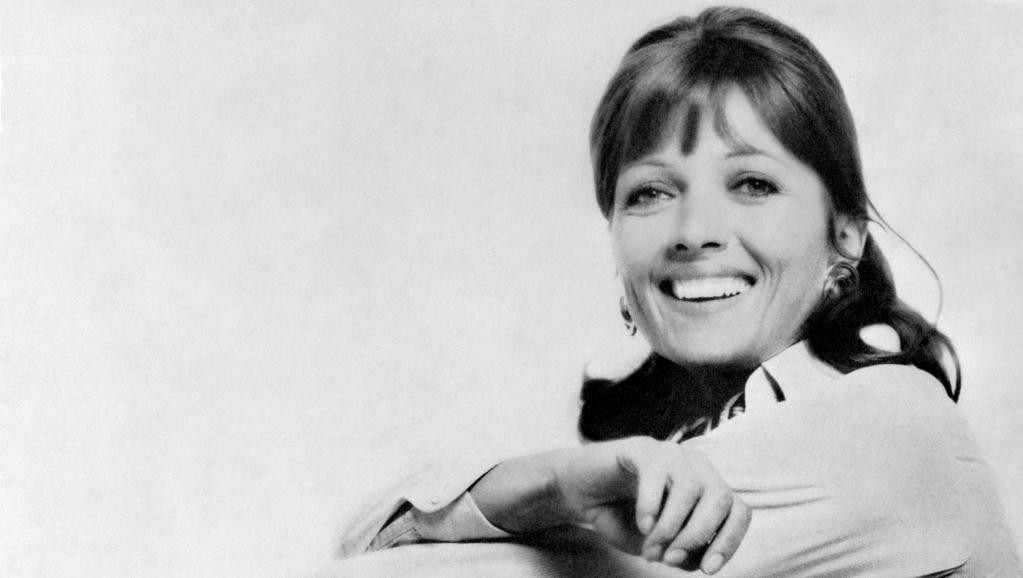
With Stephane Audran’s death, the world of cinema lost an elegant figure and inimitable voice

It is seldom that one gets to know a French actress through a Danish film. That’s what happened when a chance watching of Babette’s Feast led to a memorable array of movies by Stephane Audran.
Audran who died a couple of weeks back on March 27, 2018 at the age of 85 was in her prime in the 1960s and 70s, but arguably her best performance came out in 1987 at the age of 55 when Babette’s Feast won an Oscar for the best foreign film. Just like Jeanne Moreau owed her initial success to her director and lover Louise Malle, Audran was brought to fame by Claude Chabrol.
Chabrol (1930-2010) was one of the directors who initiated the French New Wave of filmmaking in the late 1950s. Like others of this group such as Godard, Truffaut, and Rohmer, initially Chabrol was also a film critic, writing for influential film magazines in France.
Chabrol in his films such as Les Cousins (1958), Les Biches (1968) and Le Boucher (1970) used a distanced objectivity to criticise and expose the hypocrisy of the French society. In these films, Audran played important female roles. In all, Chabrol made 24 films with Audran and established her as one of the top female actors of France. Les Cousin shows the decadence and insensitivity of the French society towards those who work hard. A country youth, Charles, arrives in Paris to live and study with his corrupt cousin, Paul. In the film, Audran had her first major role with Chabrol.
Audran married Chabrol in 1964 and then appeared in most of Chabrol’s films; but her next breakthrough was in Les Biches, which became one of their most acclaimed works together. Audran stars as the dominant and bisexual rich woman, Frederique, who finds a young beautiful but poor girl on a footpath. The rich exploiting the poor was not a new story, but a girl being sexually used by another woman was definitely new on the screen. The Biches is a marvellous depiction of tortured relationships among lovers who are also affected by their class roles. Audran cunningly manipulates the penniless female artist.
In 1970, Chabrol made The Butcher (le Boucher) with Audran in her top form. The film is an exposé of former war heroes who become known for their violent behaviour. The Butcher was called one of the best movies of the post-war period. It tells the story of a deeply troubled butcher who falls in love with the head teacher of the school played by Audran. She becomes a close friend of the butcher but refuses physical relationship. Though Audran was almost 40 at that time, she looked much younger and fitted very well in the role of a 30-year old teacher.
Her next masterpiece was directed by Luis Bunuel, The Discreet Charm of the Bourgeoisie (1972). The Spanish filmmaker Bunuel was already in his 70s when he made this surrealist film. He had been making films from the silent era and most of his films were iconoclastic and revolutionary in nature. Bunuel’s earlier films such as Los Olvidados (1950) and Belle de Jour (1967) had earned him critical acclaim. Now, with Audran, he was about to deliver another gem of surrealist cinema. If you are not a fan of dreamlike sequences and overlapping narrative probably you will not enjoy it.
The film is frustrating, inventive and outrageous at the same time; it won Academy Award for Best Foreign Language Film, and Audran won Bafta Award for best actress.
Audran’s tour de force came in Babette’s Feast directed by Gabriel Axel. In this Danish film, Audran plays the mysterious cook who enraptures a group of austere members of a tiny, remote community in 1870s’ Denmark. Her cordon bleu cooking is a delight to watch; and her poise and dignity was hard to match. In the film, Babette is a solitary artist in exile who finally has the occasion to unveil her talents in the kitchen, her guests are mostly uncomprehending villagers who savour the sumptuous meal but don’t have words to express themselves.
Audran also appeared in some English movies such as Sam Fuller’s 1980 war drama The Big Red One, in which she had a short but powerful role. With her death, the world of cinema has lost an elegant figure and inimitable voice. She often played a bourgeois woman but she was equally at ease in her roles as a school teacher or as a cook. Her roles ranged from drama to comedy to romance, but Babette’s Feast remains her most memorable film that was based on a story by Isak Dinesen who developed enigmatic title character of a sophisticated Frenchwoman in a remote Danish fishing village.